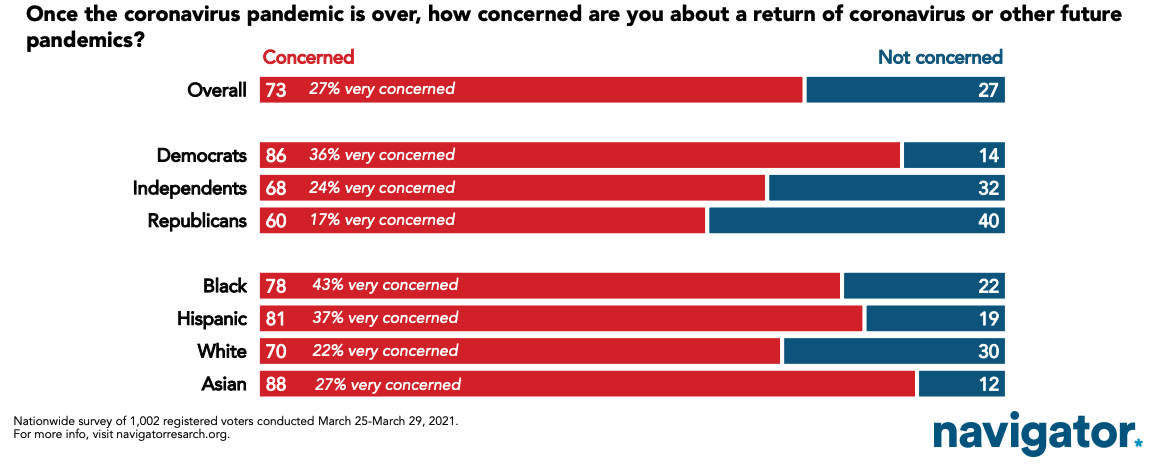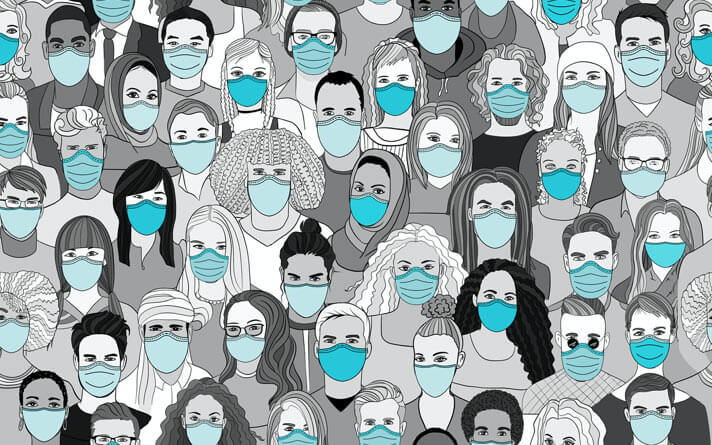Welcome to NAVIGATOR – a project designed to better understand the American public’s views on issues of the day and help advocates, elected officials, and other interested parties understand the language, imagery, and messaging needed to make and win key policy arguments.
This release features findings from a national online survey of 1,002 registered voters conducted March 25-29, 2021. Additional interviews were conducted among 103 Hispanic voters, 100 African American voters, 100 independents without a partisan lean, and 100 Asian American and Pacific Islander voters.
Key takeaways
- A steady majority continue to say the “worst is over” in the pandemic.
- As more and more Americans report both knowing someone vaccinated and having been personally vaccinated, approval of the rollout continues to climb.
- Americans express serious concerns about new variants and strains of coronavirus, as well as the potential of another future pandemic.
Majority Continue to Say the “Worst Is Over” in the Pandemic
This time last year, 74% of Americans said the worst was “yet to come” in the pandemic. Now, 53% say the “worst is over,” with a 50-point drop in the share who say the “worst is yet to come.”
- Optimism is cross-partisan: 49% of Democrats, 45% of independents, and 58% of Republicans say the “worst is over.”
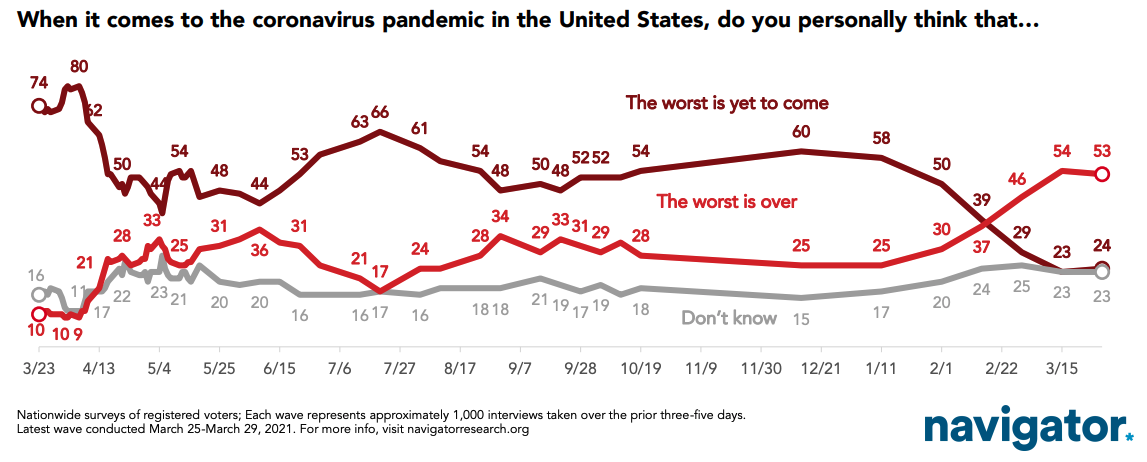
More Than Half Remain “Hopeful” on State of Pandemic
A majority of Americans continue to say they feel “hopeful,” while two in five still feel “exhausted.”
- Democrats and people of color are more optimistic than independents and Republicans on the state of the pandemic.
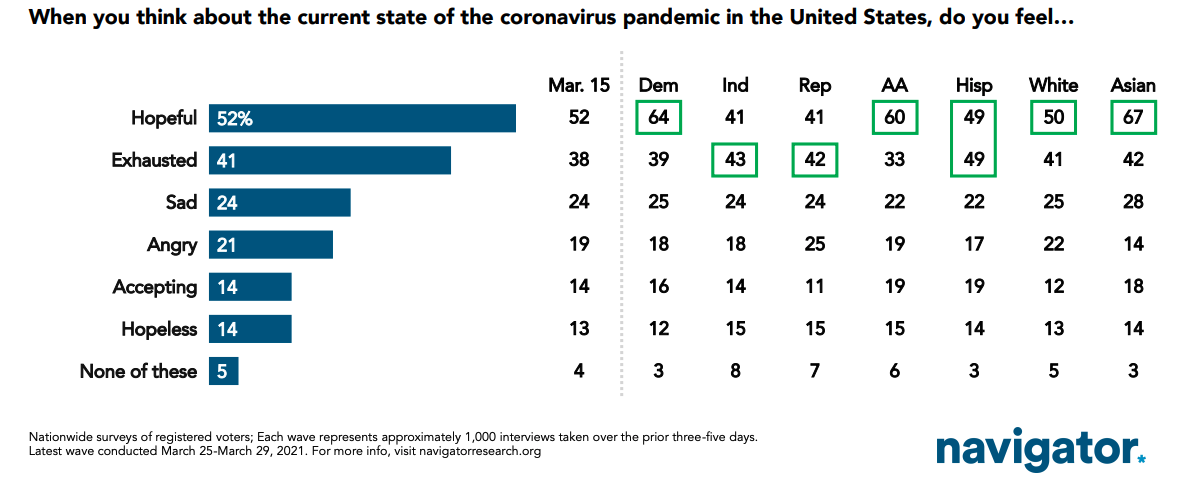
Americans Remain Committed to Social Distancing and Wearing Masks
Nearly half of independents (49%) continue to say “we shouldn’t put our guards down now.”
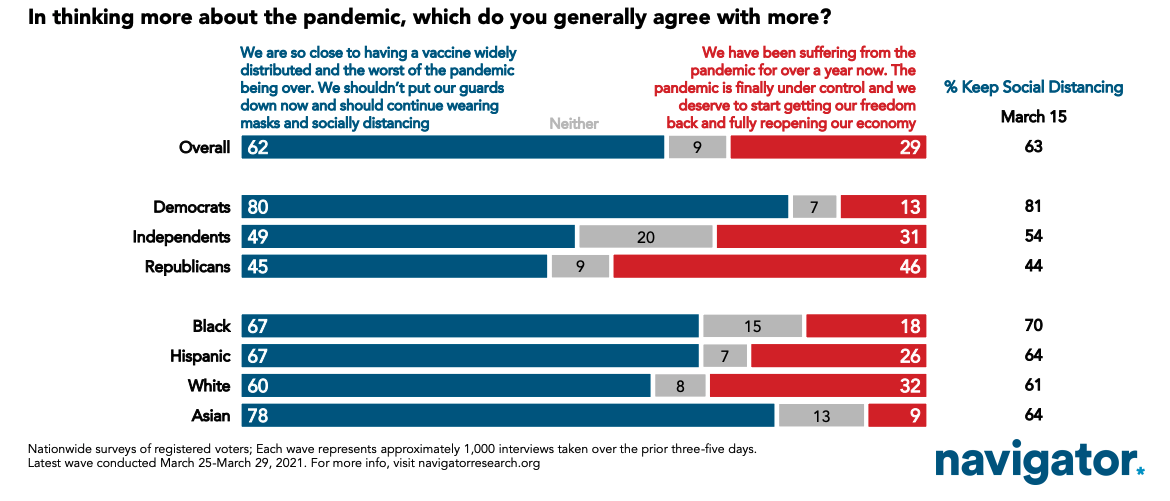
Despite Optimism, Vast Majority Knows Someone Who Has Had the Virus and Two in Five Know Someone Who Has Died
Since March 2020, the share who know someone who has been infected has increased nearly ninefold, while the share who know someone who has died from complications related to coronavirus has quadrupled since April.
- More than one in ten Americans have lost a family member (12%) or report personally having the virus (13%).
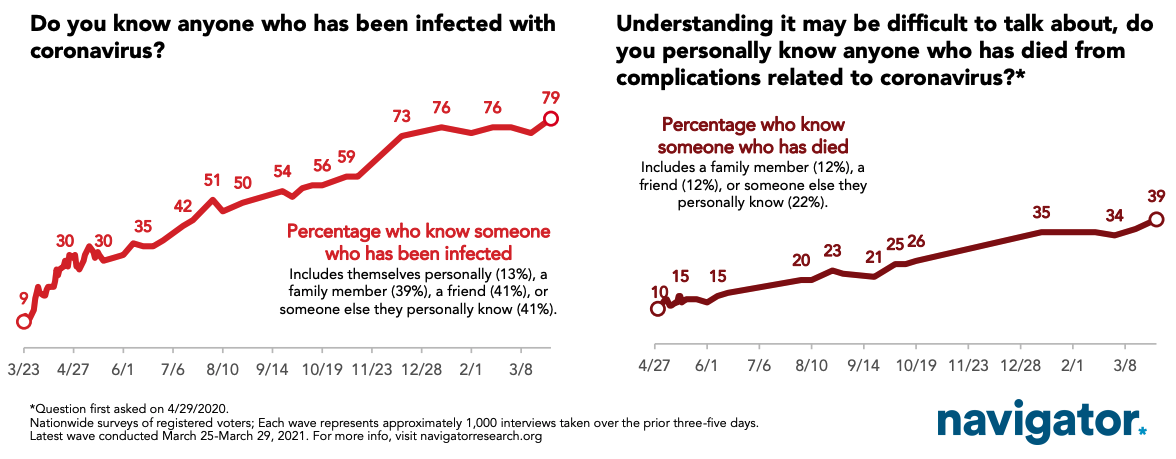
As Vaccination Rates Climb, Approval of Rollout Does Too
Since February, the share who report knowing someone who has been vaccinated has increased by 28 points, and the share who report having personally been vaccinated has increased fourfold.
- At the same time, approval of the vaccine rollout has increased by 30 points since the beginning of February, with more than two thirds now saying they approve of how the rollout is going.
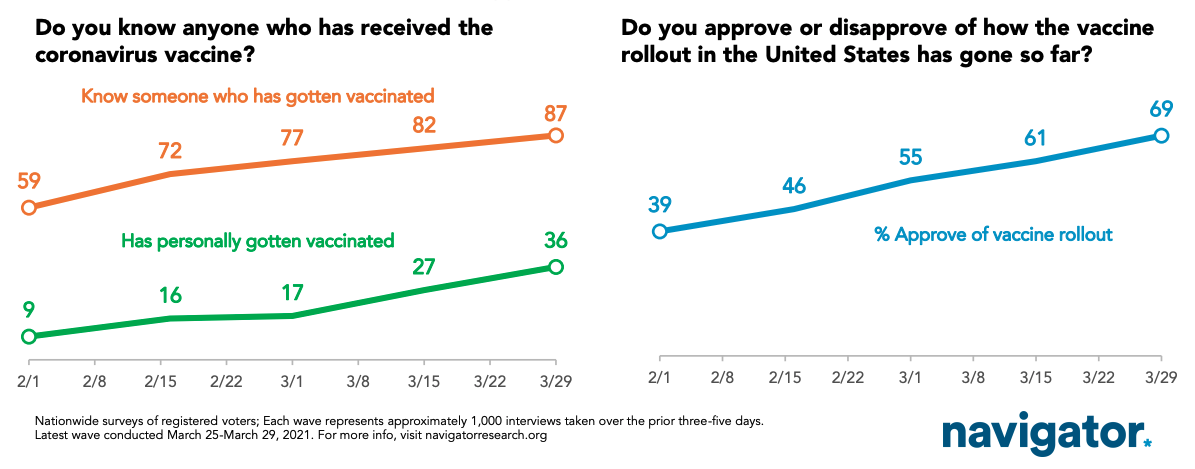
Americans Continue to See Biden’s Policies Having a Positive Impact on the Pandemic
Among independents, 57% say Biden’s policies have had a positive impact, as do 37% of Republicans.
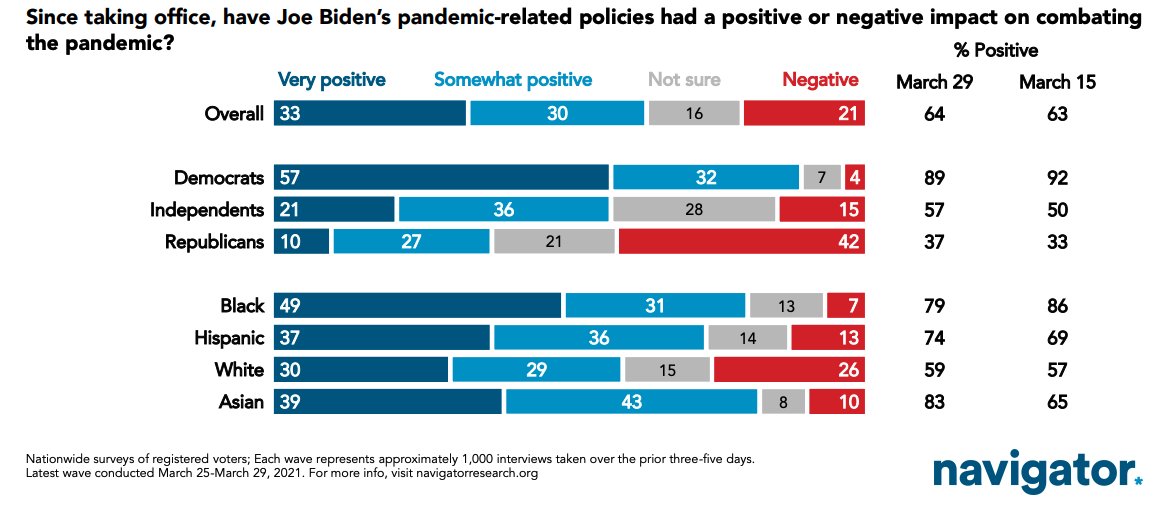
Vaccines and the Stimulus Package Continue to Dominate Positive Conversation Around Biden
Majorities of Democrats (90% positive or mix) and independents (67%) report hearing positive things or a mix of positive and negative things, as do 41% of Republicans.
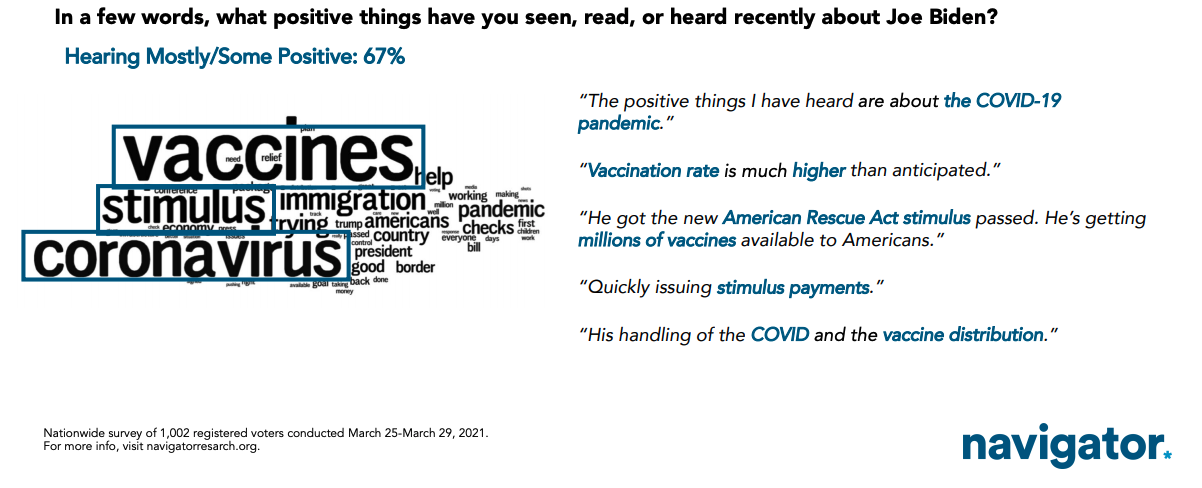
While More Still Say They Are More Worried About Their Health, Growing Share More Worried About Financial Situation
While a majority continue to say they are more worried about their household’s health and well-being during the coronavirus pandemic, a growing number say they are more worried about their financial situation.
- Republicans (47%), blue collar workers (45%), and Americans ages 18-44 (42%) are most likely to say they are more worried about their financial situation.
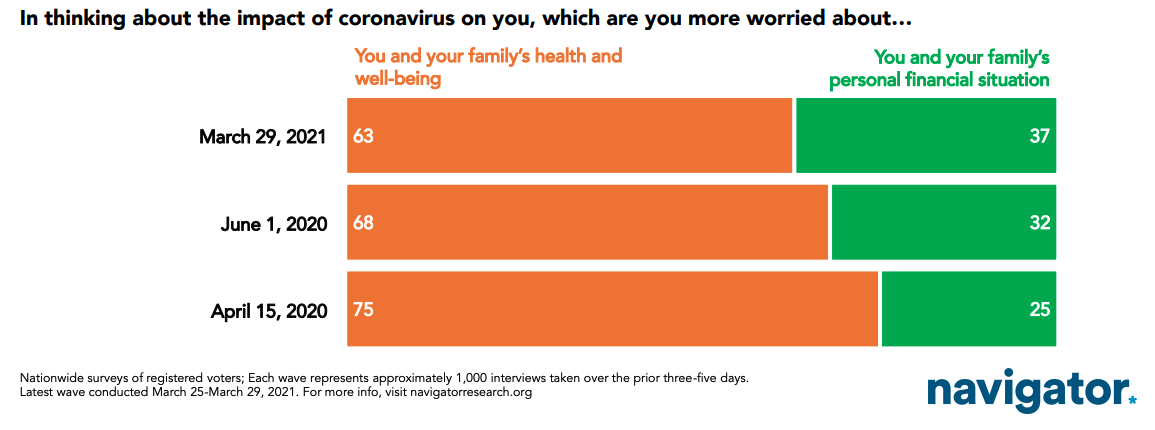
After A Year, Worries About the Health Impact of Pandemic Are Down As Financial Concerns Remain High
After one year of the pandemic, worries about a variety of aspects related to the coronavirus pandemic have decreased, but the rise of new variants is now the dominant worry for Americans.
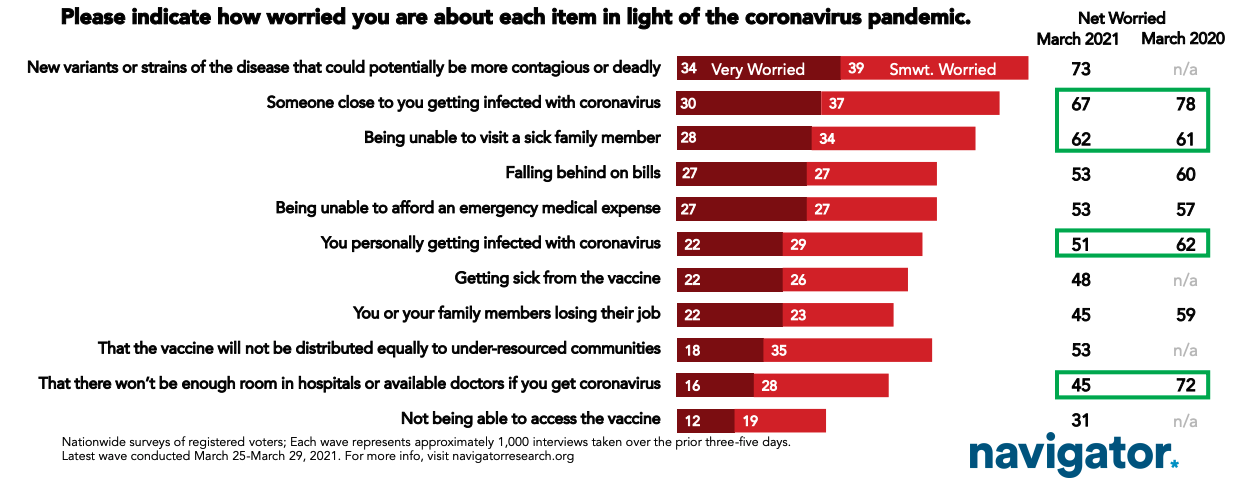
Americans Are Widely Concerned About Future Pandemics and a Return of Coronavirus
Nearly three in four Americans are concerned about a return of coronavirus or other pandemics.
- Black Americans (43%), Hispanic Americans (37%), and Democrats (36%) are most likely to say they are “very concerned.”
